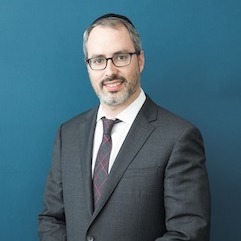It is common, particularly amongst the Chassidim, to use Matzos that were baked on Erev Pesach after Midday.
The Tur (458) quotes earlier Gaonim as saying that one only fulfills his obligation of Matzoh with Matzoh that was baked on Erev Pesach after midday, the reason being that since Matzoh is juxtaposed to the Korban Pesach. The Pascal Lamb must be slaughtered after midday; therefore the matzos must also be baked after midday on Erev Pesach. [There is some discussion in the Poskim exactly when it is considered midday with regard to this].
The Yerushalmi concurs with the opinion of the Gaonim; however in Tosefta it states that one fulfills his obligation with older Matzoh as well. The Tur rules that one should be stringent like the opinion of the Yerushalmi. The Beis Yosef adds that perhaps all Matzos, and not just the ones that one is using to fulfill his obligation, should be baked on Erev Pesach afternoon.
When the first night of Pesach is on Saturday night, the Matzos obviously can’t be baked the preceding afternoon because it’s Shabbos. The Tur quotes differing opinions; either you bake them Friday afternoon, or you bake them on Saturday night before the Seder. (Talk about fresh!) This was the opinion of the Gra and the Chasam Sofer reportedly did so as did his Rebbe, the Hafla’h. More recently, I heard that this is the minhag in Bobov as well. The Shulchon Aruch and Taz agree with the first opinion. [See Taz for a litany of reasons].
The Mishna Berura, although clearly stating that all of the above is only a Minhag, and one fulfills his Halachic obligation with Matzoh that was baked even a month or two prior to Pesach, appears to be disturbed by the lack of widespread adoption of this Minhag. He quotes the Bigdei Yesha who explains that many opinions hold that just as one cannot nullify Chametz on Pesach, so too one cannot nullify Chametz on Erev Pesach. Therefore if one would inadvertently come across some Chametz during the Matzoh baking process (as is quite common) he wouldn’t be able to do anything about it and would transgress the prohibition of Baal Yiraah. The Mishna Berura concludes that one should try to be machmir that the Matzos that he uses for the Sedarim be baked on Erev Pesach.
The Aruch Hashulchan questions the validity of using the juxtaposition of Pesach to Matzoh to infer when the Matzoh should be baked. The hekesh, he writes, is only to know when to eat the Matzoh, not when to bake it. He concludes that in the time of the Gaonim and the Tur they would bake fresh Matzoh every day of Pesach. Indeed, the Tur noted the oddity of the Barcelona community who would prepare all their Matzoh for the entire Pesach before Yom Tov. Therefore, the Matzos that one will use for the Seder should be fresh as well. But nowadays that we all prepare our Matzoh before Pesach very few people are careful about this and most don’t know about it all.
The Vilna Gaon is reported in Maaseh Rav as not being particular about using Erev Pesach matzos either.
There are however many who are careful about this Minhag, reportedly Rabbi Lamm, the chancellor of Yeshiva University, among them.
The Chida (Avodas Hakodesh, Moreh Betzba 7:205) says that the minhag is to sing Hallel during the baking of the Erev Pesach Matzos, just reminiscent of the Hallel that was sung whilst preparing the Korban Pesach.
There is an additional health benefit to eating warm, fresh Matzoh at the Seder; the Ohr Zaruah says that the warm Matzos will deflect the ill effects of the Maror.


0 Comments